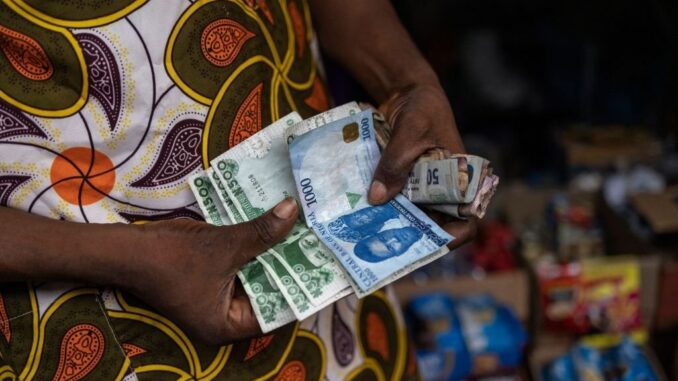
The Guardian had warned that the bold plan by the CBN to redesign and issue new naira notes from mid-December was wrongheaded and ill-timed. The CBN, in presenting the new currency plan, had leveraged the unease with substantial currency holdings outside of the banking sector and the purportedly detrimental effect on the effectiveness of monetary policy to support the decision to change the notes. Additional justifications included a desire to strengthen its cashless policy and a determination to use more recent developments in currency production to reduce instances of currency fraud.
The CBN governor concluded that while it was customary for central banks to redesign and issue new currency notes every five to eight years, the naira had not undergone such a change in the previous 20 years. Very apparently, the apex bank underestimated the effects of implementing its plan, against impending general elections, biting fuel scarcity and the high cash-based Nigerian economy.
Gleaned from Indian experience, not only will a badly implemented demonetisation leave the rural economy paralysed, the backbone of an economy, the micro and small businesses in the urban metropolis were the most negatively affected. The capacity of a cash crunch to lead to the non-availability of cash to pay for food speaks volumes about what reaction to expect from the people. The Indian 2016 experience is enough to teach Nigeria’s policymakers good lessons. But it is hard to see that they really consulted the books before embarking on the naira notes swapping (that has rather turned out to be a confiscation of people’s cash) at a time the economy is already wounded by intractable fuel scarcity.
To put some numbers to it, former Director-General of the National Bureau of Statistics (NBS), Yemi Kale, estimated that Nigeria lost between N10-15 trillion of national productivity in the first quarter of 2023, as a result of the difficulties created by the naira redesign policy. Already, negative impacts on disposable income and the consumption patterns of people are being recorded. Though less currency circulation may reduce inflation temporarily, even though the latest data from the NBS debunked this, and curb kidnapping, what is yet to be seen by many economists and financial analysts is the possibility of the government’s assertion that the naira redesign will check the influence of money on the outcomes of the country’s elections, especially in the future.
As the CBN releases old cash back to the public in obedience to the Supreme Court’s ruling, there are concerns about Nigerians going through the terrible recursive cycle after the Supreme Court’s December reprieve ends, without appropriate plans to address the gaps in cash in circulation. So many questions remain unanswered by the CBN. Nigerians deserve explanations as to what really happened. The country surely needs a post-mortem of the naira redesign policy.
How much of the new naira notes has the country printed so far? Emefiele kept assuring Nigerians and President Muhammadu Buhari that there was enough. Did he lie as alleged by Ajuri Ngelale, Senior Special Assistant to the President on Public Affairs? What is the plan of attaining equilibrium and final conversion to new notes before December, considering that old notes are being re-circulated once again? Will the people ever trust the financial system, going by how their monies were confiscated by the banks? What is the future of financial inclusion? If these questions are not answered, investors will continue to deal with Nigeria from a distance; the country’s financial system won’t be trusted; rating agencies will downgrade the country, and many SMEs destroyed by the CBN’s policy may never recover.
With the CBN hurting the economy and the common man with its policies, the benefits appear not to have been worth the enormous financial losses and avoidable suffering, especially in a system where crimes by the rich and political class are hardly prosecuted. The development, though pushed more entrants towards Nigeria’s growing agency banking and digital payments systems, has left many struggling with inflation, loss of livelihoods and unsettled transactions on many online platforms.
As posited by a former Deputy Governor of the CBN, Kingsley Moghalu, one day, we shall tally the damage that was done by the extreme politicisation and de-professionalisation of the CBN leadership to the Nigerian economy; the legitimacy and efficacy of a once-respected institution, and the legitimacy of the Nigerian state itself.
Alongside the courts, the Central Bank is a crucial institutional lens through which foreign nations, domestic and international investors evaluate the effectiveness of the Nigerian state. Once again, Nigeria missed a golden opportunity to learn from failed policies of other countries, pushing its citizens to the point of deciding which laws to obey or disobey, a just or an unjust law.
Ultimately, Nigerians found themselves between the devil and the deep blue sea. They were unable to comply with the executive’s directive that they spend only the new naira notes, because the new notes were simply not available; and as much as they were willing to heed the Supreme Court’s ruling that they continue to spend both the old and the new until equilibrium emerges, alas, there was also no old notes because the executive withheld them.
Nigerians do not deserve this quagmire now or in the future. But as the hardship lingers for the citizens, both the presidency and the CBN leadership that foisted this unjust situation on the populace must think and work to permanently relieve Nigerians of the pain. This impasse will not be resolved by mere assumptions. December, after all, is around the corner.
END

Be the first to comment